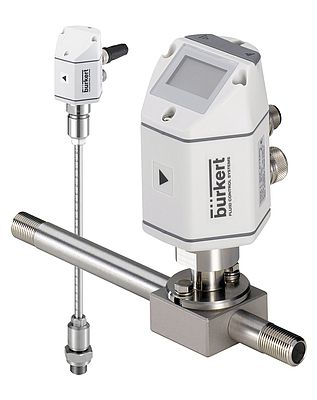The use of boilers and their associated burners is widespread across a large number of industries and they form a crucial part of many processes, especially for the generation of saturated steam. However, with ever-increasing fuel costs and the heightened focus on CO2 emissions, it is becoming more important than ever to ensure that the efficiency of this equipment is maximized. One key factor is employing accurate and reliable sensor technology which can be seamlessly connected into the main control system.
Across the industrial and commercial landscape boilers are used as the main generating system for steam or hot water and as such they need to be able to react to changes in demand without affecting the overall efficiency of the system. This ability is dependent on a number of factors including the design of the boiler, the fuel source and the control system which is used to monitor demand and manage the boiler.
In general, boilers use either oil or gas as the fuel source, although biomass is becoming a more widely used fuel as the cost of fossil fuels continues to rise and customers look for a more sustainable heating solution. For those remaining with oil and gas, the design of modern boilers has changed considerably in order to meet the latest legislation as well as improving efficiency. The need to reduce NOx emissions has led to the development of flue gas recirculation (FGR) which involves up to 25 percent of the flue gas being returned to the burner, improving combustion efficiency and reducing NOx levels to as little as 25 percent of their normal levels. Although extremely effective, FGR may not be suitable for all applications such as those with high temperature flue gases or those with elevated oxygen levels.
The control systems for modern boilers have a much greater degree of control over the fuel and air quantities as well as the water temperature and steam pressure which enables the boiler to operate more efficiently. Depending on the demand, the control system can modulate the firing rate over a wider range than previously and therefore keep the boiler running rather than using a start/stop control system which can have detrimental effects on the boiler itself.
Oil-fired
When operating an oil-fired boiler, the overall efficiency of the fuel is largely due to the particle size of the oil and its viscosity which requires accurate measurement of temperature and pressure in order to give a consistent fuel jet and maximize the efficiency of the burner. Ideal for this application, Bürkert has developed a range of pressure transmitters which provide a standardized 4-20mA output and are easily installed and integrated into the control loop to provide accurate and reliable data. In addition to the pressure sensors, the measurement of temperature is also very important to ensure the correct flow rate of fuel and this can be accomplished with an integrated transmitter such as the Type 8400 which has been designed to provide information via the built-in display as well as an analogue or fieldbus signal. Accurate burner control should also be combined with safe operation which means the inclusion of safety shut-off valves within the design of the oil burner control loop. Bürkert offers a range of TÜV-certified solenoid valves which have been designed with stringent quality controls to deliver functional reliability and low maintenance operation. Suitable for the different performance classes and types of oil burner, the range of valves is designed for use in the main fuel feed, return lines and circulation lines where the fuel is pre-heated.
Gas-fired
In the UK, the gas-fired boiler is probably the most common and with the fuel being a gas it does not suffer from issues with atomization; the control aspect relies on maintaining the correct air/fuel mix to ensure optimized combustion. This requires accurate and reliable flow measurement and flow control in order to allow the boiler to be matched to the demand of the system and thereby ensure a cost effective and efficient application. Bürkert's considerable experience in gas handling has produced a wide range of monitoring and control devices which include the latest gas flowmeters which use the calorimetric principle of flow measurement. This design enables the Type 8007 and 8008 flowmeters for example to measure large flow rates with assured accuracy since they are unaffected by changes in temperature and pressure.
Complete control solutions
Bürkert is a market leader in the control of fluids and gases, with extensive expertise and design capabilities; it can work with OEM's and end users alike to develop gas and steam control solutions and improvements for a wide range of applications. Its design expertise includes complete steam systems, heat exchangers and water heating systems for industrial and commercial applications.
























































